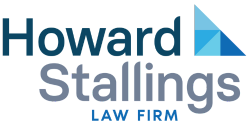What to Do if Your Home Was Destroyed by Flooding in Asheville and Western NC


The recent flooding in Asheville and across Western North Carolina has left many homeowners facing significant damage to their properties. For some, this devastation may have come without any warning, and the question on everyone’s mind is: what now? Whether you have flood insurance or not, there are critical steps you need to take to protect your rights and get back on your feet as soon as possible.
Step 1: Assess Safety First
Before even thinking about your insurance claims, it’s important to prioritize your and your family’s safety. After a flood, buildings can be unstable, electricity can pose risks, and standing water can hide hazards like debris or chemicals. Make sure it’s safe before entering your property. If you’re unsure, consult with local authorities or a structural engineer.
Step 2: Document the Damage
As soon as it’s safe to do so, document all the damage thoroughly. Take detailed photographs and videos of every room and any personal belongings that were affected by the flooding. This documentation will be essential in helping you support any insurance claim or legal action you may need to take.
What is the National Flood Insurance Program (NFIP)?
The National Flood Insurance Program (NFIP), managed by FEMA, provides flood insurance to property owners in participating communities. In high-risk flood areas, mortgage lenders often require homeowners to carry flood insurance. However, standard homeowners’ insurance policies typically do not cover flooding, which is why NFIP is critical for those in flood-prone areas.
If you have NFIP coverage, follow these steps:
- Report the claim immediately: Contact your insurance agent to start your flood insurance claim. It’s important to do this as soon as possible since many insurers are handling numerous claims after a major event.
- Schedule an adjuster’s visit: After filing your claim, an NFIP-certified adjuster will visit your home to assess the damage. Prepare your documentation (photos, videos, and an itemized list of lost or damaged items) for this visit.
- Understand your coverage limits: NFIP policies typically have limits on coverage amounts for both the structure of the home and its contents. Ensure you understand how much you are entitled to and prepare to negotiate or challenge the adjuster’s assessment if it doesn’t seem fair.
- Mitigate further damage: Make temporary repairs to prevent further damage (like covering broken windows or placing tarps over roof damage). Keep receipts for any expenses you incur in making these temporary fixes, as they may be reimbursable.
What If You Don’t Have Flood Insurance?
For homeowners who did not have flood insurance, the situation can be more complex, but there are still important steps you should take:
- Check disaster declarations: If the federal government declares your area a disaster zone, you may be eligible for assistance from FEMA. This could include grants to help with temporary housing, repairs, or other disaster-related expenses. Visit the FEMA website or disasterassistance.gov to apply for aid.
- Seek state and local assistance: In addition to federal programs, there may be state or local resources available to assist with rebuilding or temporary housing. Organizations like the Red Cross and other nonprofits often offer help as well.
- Consider legal action: Depending on the circumstances, you might have legal options if a third party’s negligence contributed to the flooding or damage. This could include issues related to drainage management or faulty construction, or it may involve disputes with your insurer. It’s important to discuss your options with an experienced property damage attorney who can evaluate your situation.
- Explore personal loans and government loans: The U.S. Small Business Administration (SBA) offers low-interest disaster loans to homeowners for repairing or replacing damaged property. These loans can be a critical lifeline if you don’t have insurance coverage for your losses.
- Keep receipts for everything: Even without insurance, detailed records of all your repair costs and lost items will be essential for applying for government assistance, loans, or potential legal claims.
Don’t Navigate This Alone
Recovering from a flood can feel overwhelming, especially if you don’t have flood insurance or your insurance company denies your claim. The law is complicated, but you don’t have to face it by yourself. Whether you’re dealing with a denied insurance claim, need to explore potential legal claims, or just need guidance on how to move forward, our team is here to help.
If your home has been damaged or destroyed by flooding in Asheville or Western NC, contact our office to schedule a consultation and learn about your legal rights and options.






